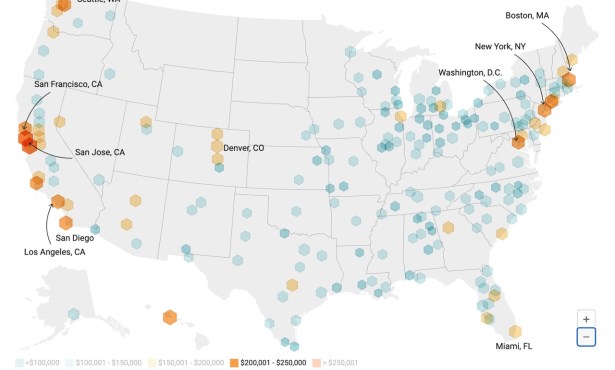What Are ‘Goods and Services’?
Understanding GDP: Part Two
Gross domestic produce (GDP) is a estimate of the value of all the good and services produced in a particular region. But what do we mean by “goods and services”? Let’s start by considering a simplified example.
Let’s say we want to analyze the financial fortunes of a small group of people, for example, a family. All we would have to do is add together all the money each member of the family makes in a year. We could then compare this value to the amount of money the same family made in the previous year. This would show us whether or not the family is doing better, financially, this year compared to last year. In the same way, we could use similar values to compare one family to another.

Economists, of course, are more interested in analyzing the financial fortunes of large regions of the world — such as entire countries — which leads to much more complicated computations. For one thing, within a country, some wealth is produced by individuals. However, much more is produced by companies, governments, and other organizations. Estimating how much value is produced by all the people, companies, governments, and organizations in an entire country is difficult because the raw numbers are not easy to come by.
When it comes to estimating gross domestic product, economists can’t just add up simple amounts of money the way you might do for a family. Instead, they must estimate the total value of all the goods and services produced within that country during a specific time period. For example, let’s say that you read that the gross domestic product of the United States was $15.68 trillion in 2012. This means that someone estimated that $15.68 trillion worth of goods and services were produced within the U.S. in 2012.
But what, exactly, do we mean by “goods and services”? You will often see this expression used as if it were a single entity. However, this is not the case, so let’s take a moment to break the idea into two parts.
In economic terms, “goods” refer to material objects, such as cars, food, computers, shoelaces, and so on: tangible stuff. This is straightforward. In most countries, the majority of goods are produced by two sectors of the economy, agriculture and manufacturing.
The term “services” refers to work that is economically valuable but does not produce anything tangible. For example, lawyers, doctors, carpenters, computer programmers, police, and athletes all provide services.
As I mentioned, calculating the value of all the goods and services produced within a country is not simple. In fact, it is so difficult that most such work is done by highly specialized statisticians, who are almost always part of the government. Their mission is to continually gather important economic statistics about their country. (Such statistics are often referred to as “economic indicators.”)
For example, in the United States, GDP is calculated every three months by the Bureau of Economic Analysis (BEA), a division of the U.S. Department of Commerce. In Canada, GDP is estimated by a government department called Statistics Canada. In the European Union, the GDP for the EU as a whole is estimated by an EU-wide statistical office named Eurostat.
This is one of a multi-part series on Understanding Gross Domestic Product appearing biweekly at independent.com. Next time: “Limitations of GDP: Economic Activity That Isn’t Counted.”
Harley Hahn has a degree in mathematics and computer science from the University of Waterloo in Canada, a graduate degree in Computer Science from UC San Diego, and has studied medicine at the University of Toronto Medical School. Hahn is a writer, philosopher, humorist, and computer expert. In all, he has written 30 books that have sold more than 2 million copies, and his work is archived by the Special Collections Department of the UC Santa Barbara library. Hahn has written widely about money and economics, and is also an accomplished abstract artist and a skilled musician. See more at www.harley.com.


